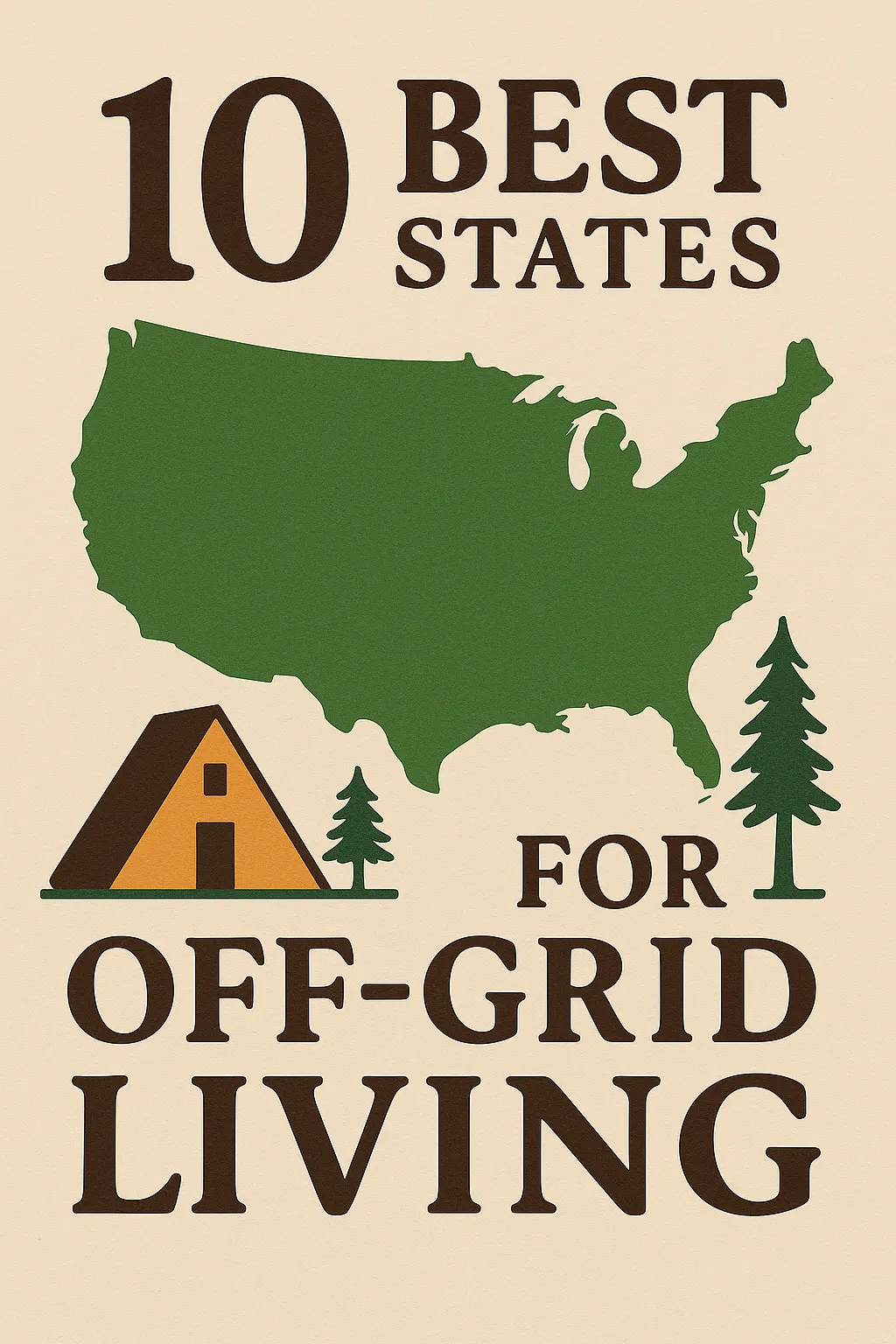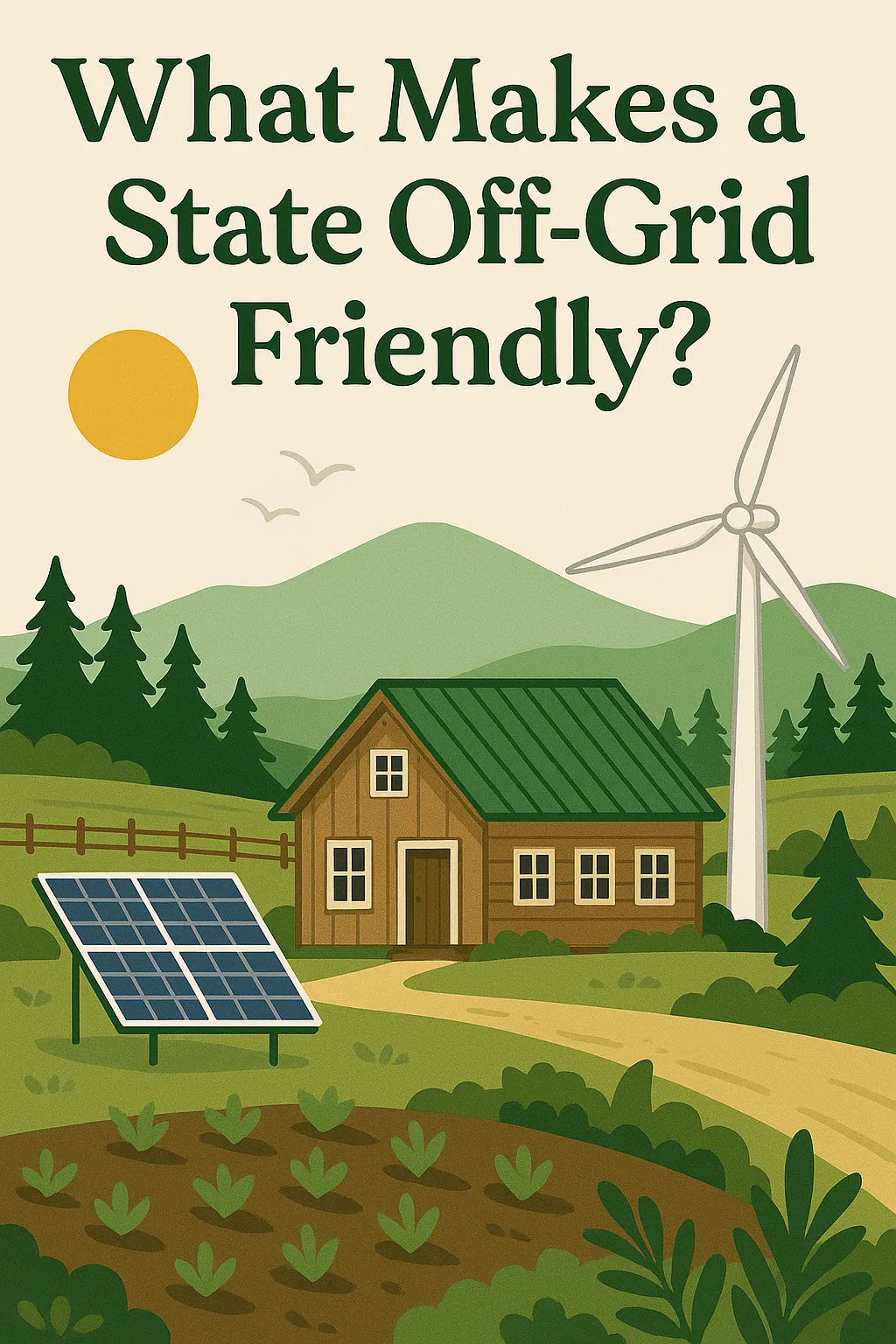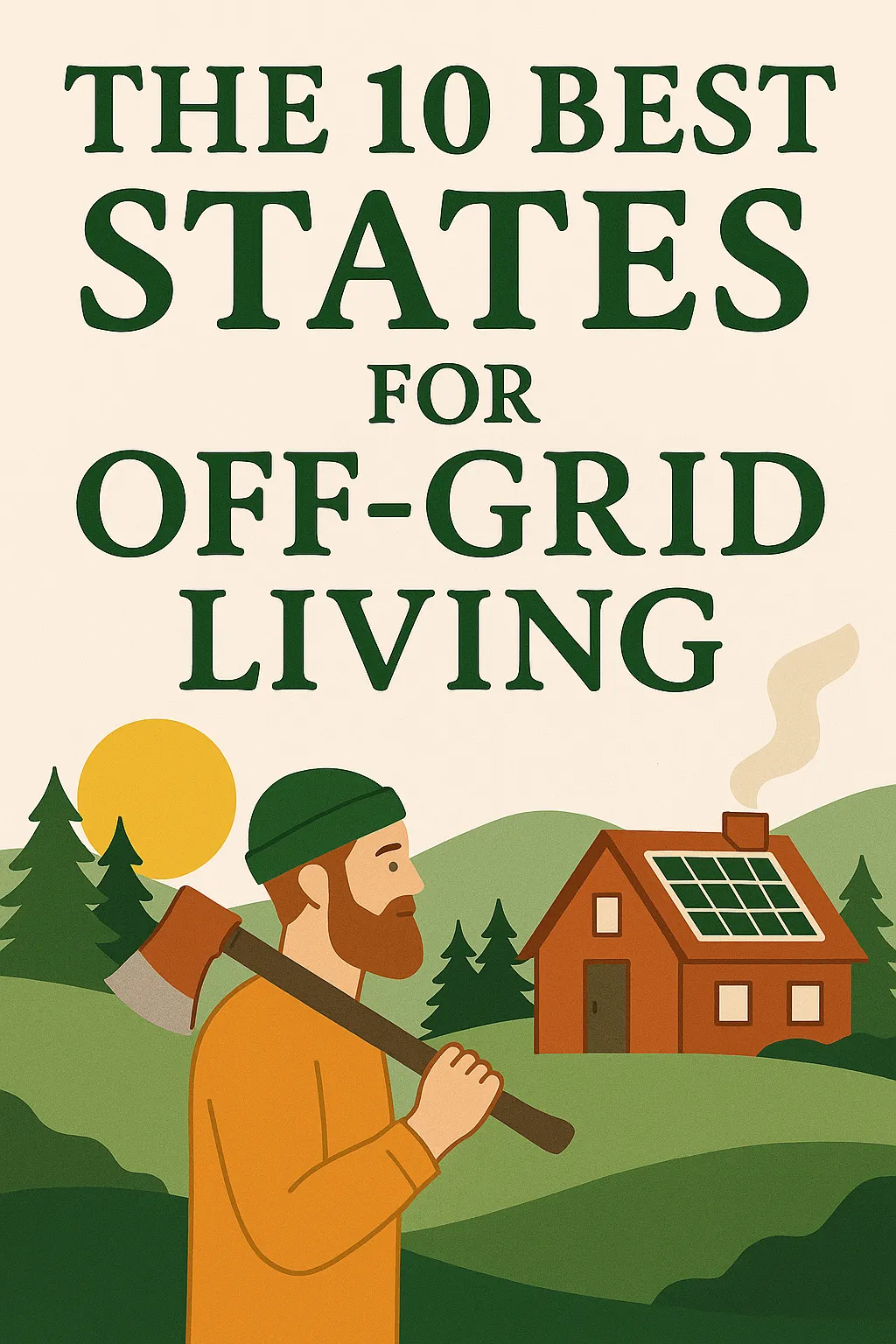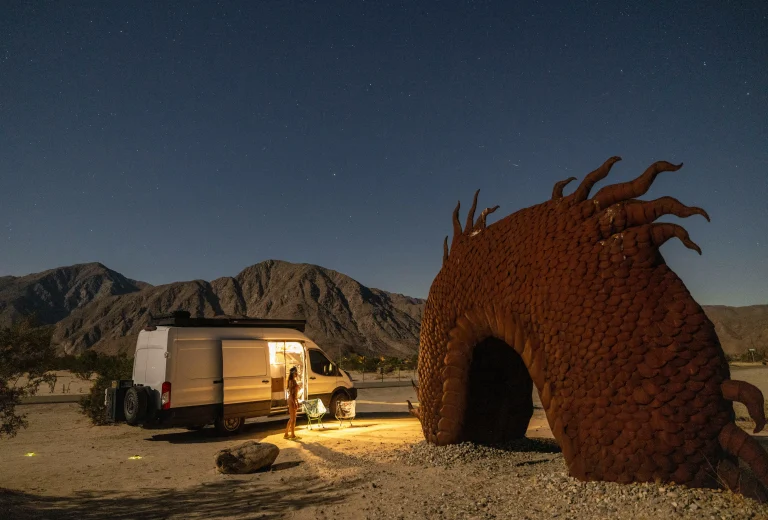Best States for Off-Grid Living: Where Will You Build Your Freedom?
If you’ve ever dreamed of living off the grid—growing your own food, collecting rainwater, and powering your home with the sun—then you know the location you choose can make or break that dream. Not every state supports this lifestyle. Some states welcome it with open arms, while others have restrictions that make it nearly impossible.

That’s why choosing from the 10 best states for off-grid living is the most important decision you’ll make before you start your journey. The right state gives you legal flexibility, access to natural resources, affordable land, and a supportive community of like-minded people.
In this article, you’ll discover 10 states that offer the best conditions to live off the grid—legally, sustainably, and affordably.
Why Choosing the Right State Matters for Off-Grid Living
You might have all the skills, tools, and motivation in the world—but if you live in a state that prohibits composting toilets, mandates grid connection, or heavily taxes your land, you’ll constantly face roadblocks.
On the other hand, the 10 best states for off-grid living support your independence by:
-
Allowing you to build with fewer restrictions
-
Permitting rainwater harvesting and alternative sewage systems
-
Offering a mild or manageable climate
-
Providing access to forests, rivers, and rich soil
Let’s explore how to evaluate and compare these states so you can choose the one that aligns with your off-grid goals.
What Makes a State Off-Grid Friendly?

1. Legal and Regulatory Freedom
The first thing to look for is freedom from restrictive building codes and zoning laws. Can you build a small cabin? Use a composting toilet? Harvest rainwater without a permit?
2. Water Access
Without water, you won’t survive. States with abundant rainfall, rivers, and lenient well-drilling laws are much more supportive for off-grid residents.
3. Climate
A mild climate means less energy needed for heating or cooling. Look for states with longer growing seasons if you plan to grow most of your own food.
4. Land Affordability and Tax Policy
High land costs and property taxes can crush your off-grid budget. The best states offer rural land at affordable prices with reasonable taxes.
5. Community and Culture
Living off-grid doesn’t mean being alone. Some states have strong communities of homesteaders, preppers, and eco-conscious people who share knowledge and resources.
The 10 Best States for Off-Grid Living
Let’s break down the top 10 states where going off the grid is not only possible—it’s encouraged.

1. Missouri – A Hidden Gem for Homesteaders
Missouri offers some of the most flexible regulations for off-grid living. Rural land is affordable, water is plentiful, and counties often don’t enforce building codes.
Why it’s great:
-
No state restrictions on rainwater harvesting
-
Compost toilets are legal
-
Low property taxes
-
Long growing season for crops
Watch out for: Tornado season and heavy summer humidity.
2. Tennessee – Mild Climate and No State Income Tax
Tennessee is one of the 10 best states for off-grid living because of its balance of affordability, climate, and freedom. You’ll find communities that already embrace sustainable living.
Why it’s great:
-
No state income tax
-
Plenty of rainfall and forested land
-
Flexible zoning in rural counties
-
Productive soil for agriculture
Watch out for: Higher land prices in eastern Tennessee.
3. Maine – Abundant Water and Wild Land
If you value remote living and self-sufficiency, Maine should be at the top of your list. It’s ideal for people who want to truly disconnect.
Why it’s great:
-
Extremely affordable rural land
-
Legal off-grid building practices
-
Clean rivers and lakes
-
Rich in edible wild plants and herbs
Watch out for: Harsh winters and short growing seasons.
4. Texas – Big Land, Big Opportunity
Texas may surprise you. While some areas are dry, others (like East Texas) are lush and perfect for off-grid homesteads. Laws vary by county, but in many places, freedom reigns.
Why it’s great:
-
No state income tax
-
Cheap land in rural counties
-
Massive solar potential
-
Legal rainwater harvesting
Watch out for: Water rights restrictions in drought-prone zones.
5. Oregon – Eco-Friendly and Resource-Rich
Oregon combines a green mindset with natural abundance. While the western part is more regulated, eastern Oregon offers space and flexibility.
Why it’s great:
-
Legal greywater systems and compost toilets
-
Supportive of sustainable building practices
-
Excellent forests, rivers, and fertile land
-
Existing off-grid communities
Watch out for: High land costs near urban centers.
6. Alaska – The Final Frontier for the Truly Self-Reliant
Alaska isn’t for the faint of heart, but for those willing to brave the wilderness, it offers ultimate independence.
Why it’s great:
-
No sales or income tax
-
Legal to build completely off-grid
-
Clean water and abundant wild game
-
Very low population density
Watch out for: Brutal winters, long distances to amenities, and shipping costs.
7. Arkansas – Balanced Living at a Budget
If you want a mild climate, fertile soil, and plenty of rainfall—all at a low cost—Arkansas checks every box.
Why it’s great:
-
Cheap land with minimal zoning laws
-
Great for gardening and livestock
-
Rainwater collection is legal
-
Ideal for beginners and budget-conscious builders
Watch out for: Occasional severe weather and limited job market.
8. New Mexico – Sunshine and Self-Sufficiency
New Mexico is one of the 10 best states for off-grid living if solar energy is your main power source. Plus, the laws are friendly toward DIY systems.
Why it’s great:
-
Very high solar radiation levels
-
Legal composting toilets and alternative building
-
Low cost of land
-
Warm, dry climate reduces mold issues
Watch out for: Limited natural water sources—rain harvesting is essential.
9. Montana – Rugged and Rewarding
For those who value space, solitude, and natural abundance, Montana is a top contender.
Why it’s great:
-
Affordable land and minimal restrictions
-
Rich in hunting and fishing opportunities
-
Clean rivers and mountain air
-
Large plots available for privacy
Watch out for: Cold winters and short planting seasons.
10. Kentucky – Underrated and Resource-Rich
Kentucky offers fertile farmland, low property taxes, and a welcoming environment for those seeking independence.
Why it’s great:
-
Mild four-season climate
-
Inexpensive land in rural areas
-
Legal to use off-grid systems
-
Strong homesteading community presence
Watch out for: Localized zoning differences—research each county.
🌿 Want to turn your off-grid dream into a functional lifestyle—no matter the state you choose?
The Self-Sufficient Backyard gives you the exact strategies and blueprints to build food, water, energy, and shelter systems—all without depending on the grid.
Comparison Table – 10 Best States for Off-Grid Living
| State | Climate | Water Access | Land Cost | Legal Friendliness | Solar Potential |
|---|---|---|---|---|---|
| Missouri | Mild | Excellent | Low | Very High | Moderate |
| Tennessee | Mild | High | Moderate | High | High |
| Maine | Cold | Excellent | Very Low | Moderate | Low |
| Texas | Hot/Dry | Low–Moderate | Low | High | Excellent |
| Oregon | Varied | High | Moderate | High | Moderate |
| Alaska | Very Cold | High | Low | High | Low |
| Arkansas | Mild | High | Low | Very High | Moderate |
| New Mexico | Hot/Dry | Low | Low | Very High | Excellent |
| Montana | Cold | High | Low | High | Moderate |
| Kentucky | Mild | High | Low | High | Moderate |
Tips for Choosing the Right State for Off-Grid Living
-
Know your goals: Farming, hunting, privacy, or year-round gardening?
-
Study the laws: Check for water rights, compost legality, and zoning.
-
Visit before you commit: Walk the land, talk to locals, and test the climate.
-
Build gradually: Start with shelter and water, then expand.
Recommended Resource: The Self-Sufficient Backyard
If you’re planning to build a life off the grid, this guide is an essential tool in your journey.
Here’s what you’ll discover inside:
-
How to grow food in any climate
-
Build an off-grid water system
-
Raise chickens and build greenhouses
-
Set up solar power and composting toilets
-
Proven tips from real homesteaders living 100% off-grid in the U.S.
👉 Start your off-grid blueprint with The Self-Sufficient Backyard
FAQ – Best States for Off-Grid Living
What’s the easiest state to go off-grid in?
Missouri and Arkansas are top picks due to low regulation and affordable land.
Which states have the most solar power potential?
New Mexico and Texas offer abundant sunlight year-round.
Can I legally live off the grid in all 50 states?
Technically yes—but local (county-level) laws may require grid tie-ins or restrict certain systems.
Are off-grid communities common?
Yes, especially in Oregon, Maine, Tennessee, and parts of Texas. These communities often share tools, knowledge, and support.
Conclusion: Where You Live Determines How You Thrive
Your off-grid journey begins with a single decision: where you plant your roots. These 10 best states for off-grid living give you the freedom to build your own systems, grow your own food, and live life on your terms.
Before making your move, evaluate your priorities. What climate can you thrive in? How important is land cost, or water access? The more aligned your environment is with your goals, the smoother your path to self-sufficiency.
🌱 Looking for more than just a place to live off-grid?
The Self-Sufficient Backyard gives you the tools, plans, and knowledge to live fully independent—no matter what state you call home.
💬 Which State Would You Choose?
Are you already living off-grid in one of these states—or planning your move? Drop a comment and share your experience. And don’t forget to follow us for more insights on off-grid living, survival skills, and homesteading freedom.

